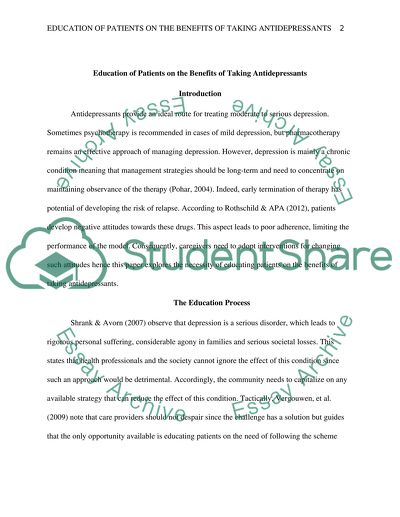Education of Patients on the Benefits of Taking Antidepressants Research Paper. Retrieved from https://studentshare.org/nursing/1454347-education-of-patients-on-antidepressants
Education of Patients on the Benefits of Taking Antidepressants Research Paper. https://studentshare.org/nursing/1454347-education-of-patients-on-antidepressants.


